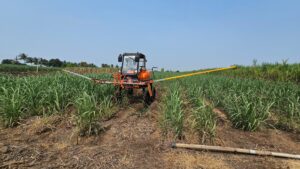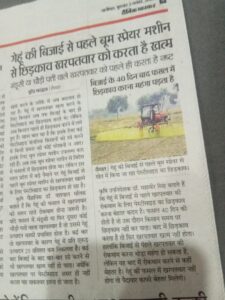Millions of farmers across the globe rely on agriculture for sustenance, and millions more depend on it for their livelihoods. With more than 45% of the world’s population dependent on agriculture, and more than 90% of these 45% being smallholder farmers – farm productivity, crop protection to ensure minimal crop losses, and building for their resilience remain critical priorities for them.
Through our sustained efforts, leveraging technology, digitization, and making farm mechanization accessible for all, we are slowly making inroads towards an era of precision agriculture farming practices that are efficient, sustainable & profitable.
What is Farm Mechanization?

Any tools, equipment, and machines that help accomplish critical tasks of farming like planting, irrigation, spraying, cultivation, harvesting, etc., with minimal manual interventions, reduced dependency on labour, helping optimize input & water usage, impact farm productivity can be categorized under the broad umbrella of farm mechanization.
Farm mechanization eliminates human errors, reduces labour costs, and improves acreage. Today, farmers are leveraging boom sprayers, drones, planters, rotavators, seed drills and harvesters to improve spraying, fast-track planting, seed-bed preparation, and harvesting with precision.
Boom Sprayers are seeing rapid adoption across geographies, crops, and clusters as farmers see & find value in automated machine spraying, which promises 100% protection, optimized cost of input, and better return on investment. Most importantly, these machines are easily manoeuvrable on the farm, ensuring no stomping, eliminating labour hassles, and increasing spraying efficiency in comparison to manual spraying as well.
A recent news article published in the Dainik Bhaskar talks about the benefits of boom sprayers & how farmers are transitioning to mechanization.

Soon, these farmers will leverage drones to survey their fields, identify infestations, and collect data points for plant & soil health using satellite imaging and IoT remote sensors, creating traceable digital records of vegetation indices, soil moisture content, leaf surface area, etc. Last but not least, mechanization will soon play a significant role in the sowing, growth, and harvest stages of cultivation for millions of smallholders in India. And nurture.farm, through its 360-degree approach, will work with its field partners, farmers, and agronomists to make it a reality.




